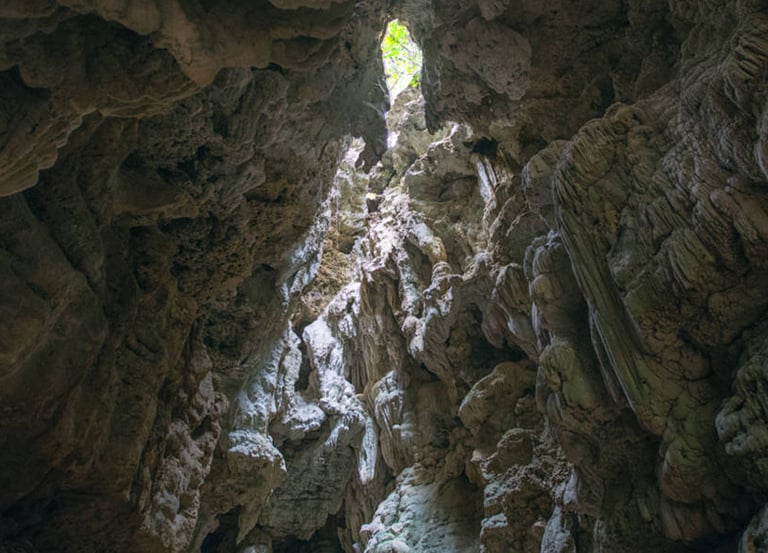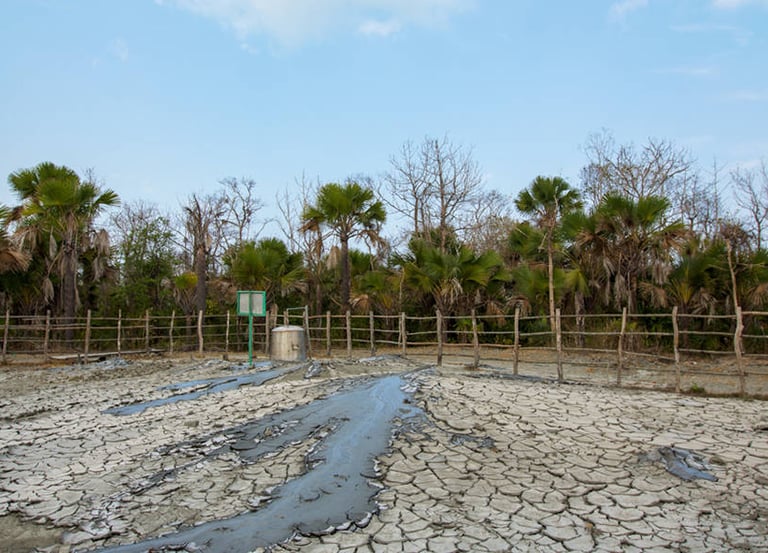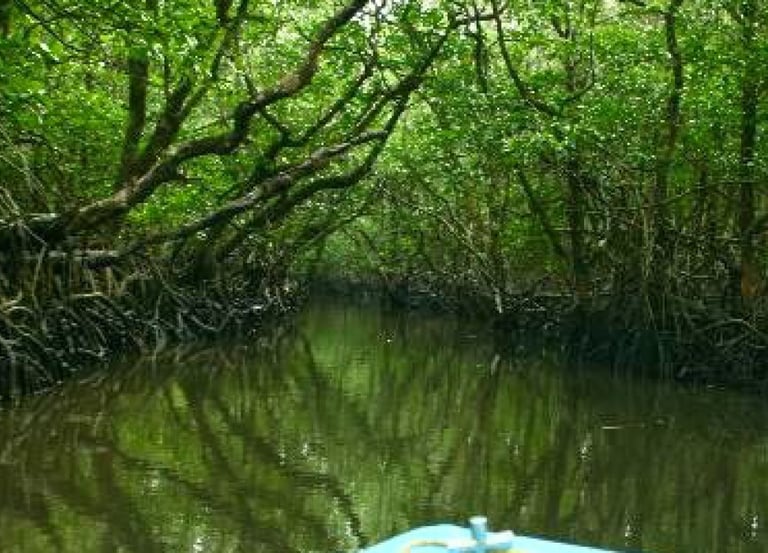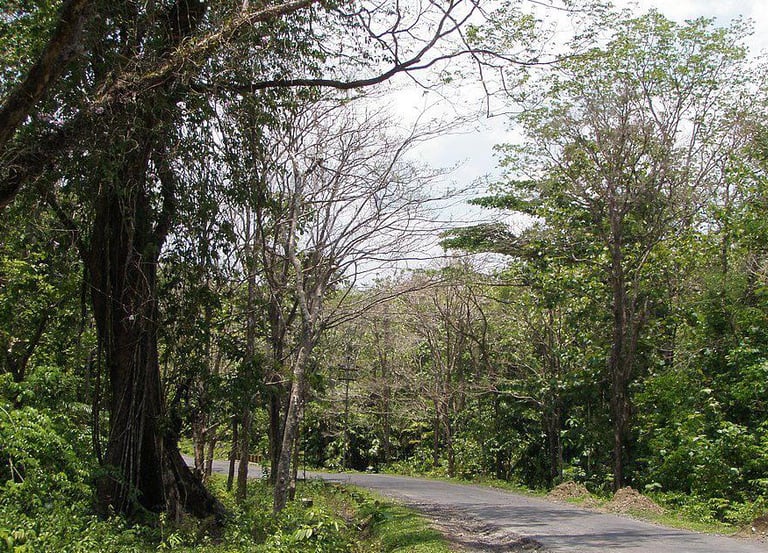Baratang Island – The Hidden Gem of Andaman's Wilderness
Located around 100 km from Port Blair, Baratang Island is a must-visit for those who love raw natural beauty, offbeat adventure, and unique geological formations. Far from the touristy crowds, Baratang takes you deep into the heart of dense tropical forests, tribal reserves, and untouched nature. From mysterious limestone caves to India's only active mud volcano, every corner of Baratang promises something thrilling and rare.


Limestone Caves – Nature’s Underground Art
One of Baratang’s star attractions, the Limestone Caves are an enchanting creation of nature, with stunning stalactite and stalagmite formations. The journey to the caves involves a short boat ride through mangrove creeks, followed by a light trek through the forest — an adventure in itself! As you enter the cool, dark caves, you’ll be amazed by the glittering mineral formations that look like natural sculptures.


Mud Volcano – A Rare Natural Phenomenon
Baratang is home to India’s only active mud volcano, a truly unique sight. Unlike fiery volcanic eruptions, this one bubbles with cold mud and gas, slowly creating mini mud domes that look like bubbling craters. Though small in size, it's a fascinating stop that you won’t see anywhere else in the country.


Mangrove Boat Rides – Through a Living Tunnel
The boat ride through thick mangrove forests is a peaceful and surreal experience. The narrow waterway, surrounded by lush greenery on both sides, feels like a secret jungle tunnel. It’s calm, refreshing, and perfect for photography and bird watching.


Jarawa Reserve Forest – Glimpse into Tribal Territory
The road to Baratang passes through the Jarawa Tribal Reserve, one of the few places where visitors might glimpse members of the Jarawa tribe, one of the ancient tribes of the Andaman Islands. While stopping is strictly prohibited to protect their privacy, the journey through this dense forest stretch gives a sense of Andaman’s rich indigenous heritage.
⚠️ Important Note:
Photography, videography, or any interaction with the Jarawa or other indigenous tribes is strictly prohibited and considered a legal offense under the law. These communities are protected by the Indian Government to preserve their privacy, culture, and way of life. Visitors are requested to respect their dignity and avoid any actions that may disturb or exploit them.

